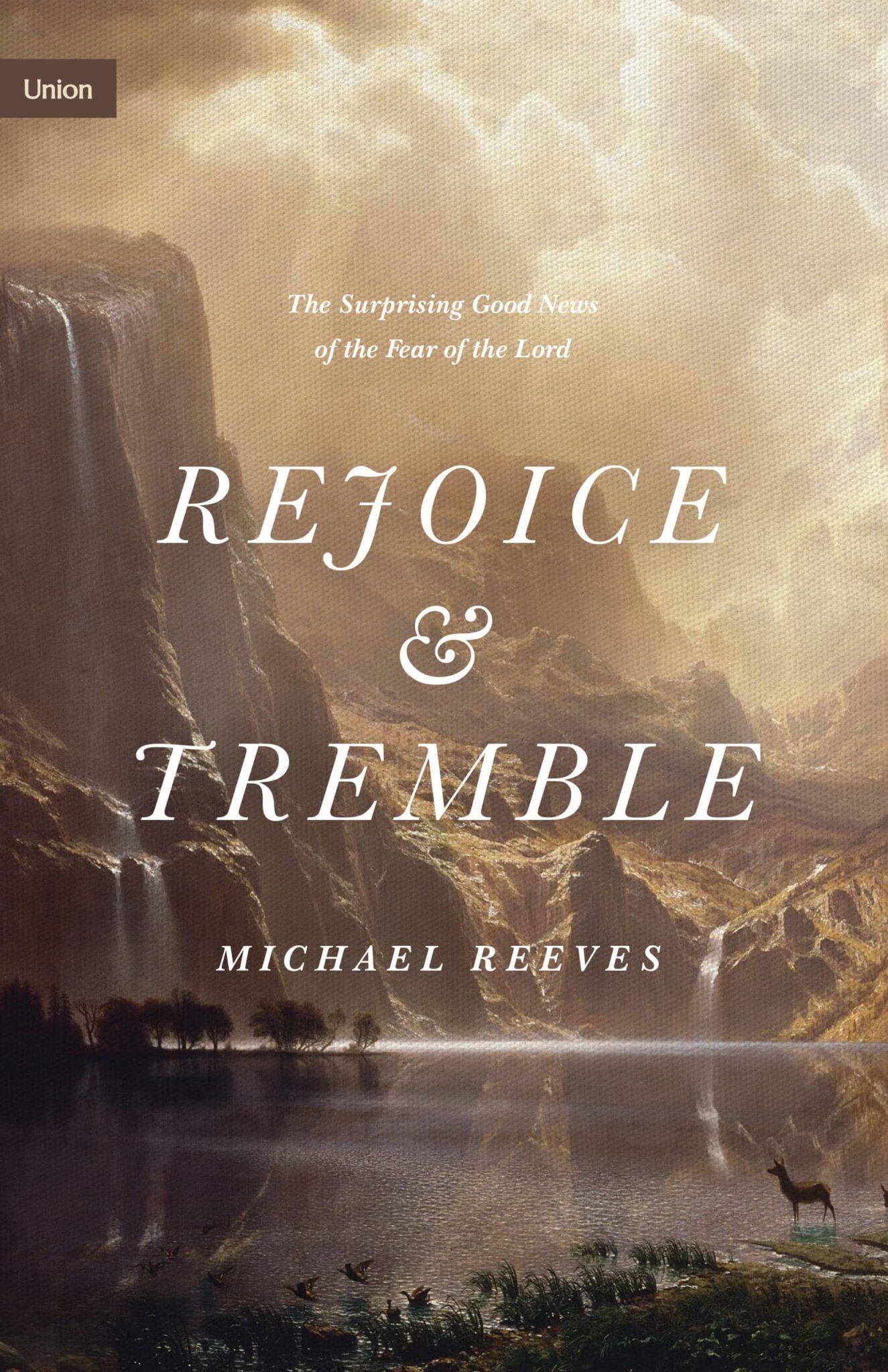Michael Reeves. Rejoice and Tremble: The Surprising Good News of the Fear of the Lord. Wheaton, IL: Crossway, 2021. 168 pp. $15.78.
Books on the Christian life, general spirituality, sanctification, or Christian living roll off the presses seemingly endlessly, but the quantity is typically inversely proportional to the quality. Writers like A. W. Tozer and C. S. Lewis are rare indeed. In the same vein, few are the writers who can tackle the topic of fearing God and manage to avoid the opposite ditches of sentimentalizing or heavy-handing the dread aspect of fearing God. Jerry Bridges, Al Martin, and a few others have made notable attempts, but the task is a large one: explain how the Christian is to live with both the goodness and greatness of God. Complex themes require incisive minds.
Having been impressed with Michael Reeves’s Delighting in the Trinity, I was intrigued to see if he could bring the same care and skill to the topic of fearing God in Rejoice and Tremble. I was not disappointed.
Reeves tackles the topic by first considering our fear-ridden society, one that sees fear as wholly negative, and without a category for a healthy fear. He then begins the task of separating sinful fear from right fear, and shows that at the heart of sinful fear is not a healthy self-preservation, but unbelief that flees from God. Right fear of God is entirely compatible with joy, love, and awe, because of its favorable standing with God.
Rejoice and Tremble then explores the fear of God as a response to God’s nature: first as Creator, and then as Father. Up to this point, Reeves echoes what many writers, particularly Puritans, have said on the fear of the Lord. But Reeves is at his best in his chapter “How to Grow in this Fear.” Here Reeves explores how the gospel itself is the source of reconciling holiness and love, justice and mercy, power and tenderness. “But there is forgiveness with you, that you may be feared” (Ps 130:4). Only in the grace of forgiveness does a sinner come to fear God rightly, uniting both deep awe and filial devotion. Reeves does what few have done on this topic: explain how regeneration, justification, and sanctification are the true keys to a reverent love of God.
His final chapters extend the topic of fearing God to life in the church, and to life in eternity. In just 168 pages, Reeves manages a satisfyingly concise treatment of fearing God. The book’s relative brevity precludes Reeves from delving into murkier ground, such as why Christians that profess to fear God express that fear in such opposite ways. Reeves does not explore what is at the heart of irreverence or why many “gospel-centered” Christians seem to arrive at almost different visions of who God is. But that is not what this book is about, for that would be an exploration of culture, anthropology, and church history. Reeves’s central thesis is fundamentally correct: true faith in the saving work of Christ, when rightly understood, leads one to joyful awe before our Creator-Father.
While reading this book, I was struck by how it provides a counterbalance for the popular work Gentle and Lowly, by Dane Ortlund. Gentle and Lowly emphasizes the meekness of Christ’s heart to the point that many have felt Ortlund’s treatment is exaggerated and theologically unbalanced. If so, then Rejoice and Tremble is the book that thoughtful Christians will find even-handed in its treatment of God’s holiness and gracious love.
C. S. Lewis once said that conceptual analysis and felt experience are never simultaneous. He pointed out that the dilemma is
either to taste and not to know or to know and not to taste—or, more strictly, to lack one kind of knowledge because we are in an experience or to lack another kind because we are outside it. As thinkers we are cut off from what we think about; as tasting, touching, willing, loving, hating, we do not clearly understand. The more lucidly we think, the more we are cut off: the more deeply we enter into reality, the less we can think.[1]
Works on worship or spirituality suffer from this dilemma, because they must define, dissect, and analyze while trying to lead us into the experience of what they discuss. Rejoice and Tremble is a work that skillfully defines the fear of the Lord, but comes close to allowing us to enter that experience while reading it.
David de Bruyn
Shepherds’ Seminary, Africa
[1] C. S. Lewis, “Myth Became Fact,” in God in the Dock: Essays on Theology and Ethics, ed. Walter Hooper (Grand Rapids: Eerdmans, 1970), 65–66.





